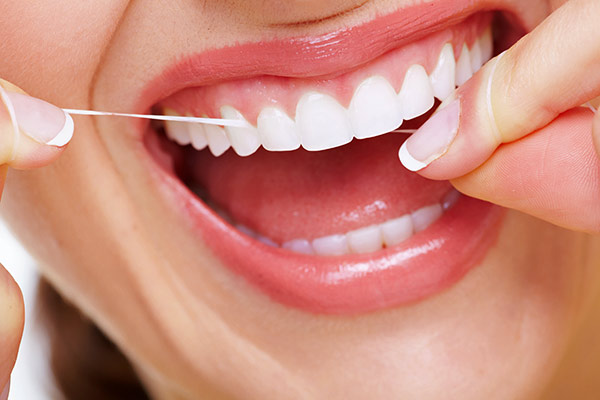Post Preview
Table of Contents
- Introduction: The Importance of Dental Hygiene
- The Connection Between Dental Health and General Health
- Preventing Costly Dental Problems
- Financial Benefits
- Enhanced Self-Esteem and Confidence
- Improving Your Quality of Life
- Reducing the Risk of Oral Diseases
- Role of Nutrition in Dental Health
- Conclusion: Make Dental Hygiene a Daily Priority
Introduction: The Importance of Dental Hygiene
Maintaining good dental hygiene is critical for overall well-being, yet many underestimate its importance. To understand why is dental hygiene important, we must recognize its broader implications for our health. A well-rounded approach to oral care doesn’t just benefit your teeth and gums; it can also affect your self-esteem, social interactions, and overall health.
The Connection Between Dental Health and General Health
Inadequate oral care has a notable effect on overall well-being that goes beyond just cavities and periodontal issues. Research shows connections between oral health and diseases such as heart disease, stroke, and diabetes. Bacteria from periodontal disease can spread via the bloodstream, potentially leading to blood clotting and heart attacks. Giving importance to dental care not only maintains oral health but also enhances overall well-being, simultaneously preventing multiple health issues. Respiratory health can be influenced by oral health, as gum infeictions may result in pneumonia, especially in individuals with weakened immune systems. Effective oral care serves as a protection against these major health dangers. Furthermore, long-term issues with teeth can impact mental well-being by causing discomfort that affects mood negatively. Dealing with dental problems can enhance mental well-being, highlighting the significance of taking care of oral hygiene.
Preventing Costly Dental Problems
Regular brushing, flossing, and dental check-ups can prevent expensive and painful dental problems such as cavities, gum disease, and tooth loss. Preventive measures and regular cleanings aid in stopping problems before they start, significantly reducing the risks associated with costly dental treatments. Proactive dental care helps avoid invasive procedures like root canals, crowns, and dental implants, saving time, money, and discomfort. Evading dental issues also means avoiding the emotional distress associated with these problems, which can often be just as taxing as the financial cost.
Financial Benefits
Investing in preventive dental care proves cost-effective compared to paying for treatments. Routine cleanings and check-ups are affordable, typically ranging from $75 to $200, whereas procedures like dental implants can cost $1,000 to $4,000 each. Delaying dental care can lead to significant financial burdens, making preventive measures an intelligent investment. Consistent oral hygiene reduces immediate costs and minimizes the need for expensive treatments and dental insurance in the long term. Regular check-ups enable early detection of issues such as oral cancer, cavities, and gum diseases, allowing for less invasive and more affordable interventions. Over a lifetime, these preventive actions contribute to substantial savings and better overall dental health.
Enhanced Self-Esteem and Confidence
Proper dental care not only results in a shiny, healthy smile but also enhances self-confidence and self-esteem. A clean mouth and fresh breath enhance personal interactions, making positive impressions in various settings like job interviews, dates, and social gatherings. Investing in dental care promotes a positive self-image and enriches social engagements. Psychologically, a healthy smile carries significant benefits. Research indicates that individuals with good oral hygiene are often perceived as more successful, approachable, and trustworthy, impacting both professional opportunities and personal relationships. Beyond physical health, dental hygiene influences social and emotional well-being, encouraging more frequent smiling and laughter. This positivity can elevate mood and reduce stress, contributing to overall well-being and creating a cycle of positivity in life.
Improving Your Quality of Life
Keeping your mouth healthy is essential for a life free of discomfort and pain. Having poor oral health can lead to problems with eating and talking, affecting daily routines and overall well-being. Chronic dental problems can lead to sleep disturbances and decreased productivity due to issues like toothaches. Addressing dental problems promptly through good hygiene can prevent these impacts, fostering a balanced and energized lifestyle. Additionally, good oral hygiene helps prevent chronic bad breath, which can affect social interactions and emotional well-being. Regular oral care also contributes to a sense of routine and self-care, enhancing overall satisfaction and quality of life.
Reducing the Risk of Oral Diseases
Consistent dental care is essential for reducing the risk of oral diseases such as cavities, gingivitis, and periodontitis. Poor oral hygiene increases harmful bacteria, leading to plaque buildup, which can subsequently cause various oral diseases. By brushing twice daily, flossing, and visiting the dentist regularly, you can prevent these common dental issues and maintain a healthy mouth. A disciplined dental care routine can minimize the risk of infections, tooth decay, and other oral health problems.
Role of Nutrition in Dental Health
Good nutrition is important for maintaining healthy teeth and gums. Having a well-rounded diet that includes vitamins and minerals is crucial, with examples like dairy for calcium, leafy greens for folic acid, and fruits and vegetables for fiber. These foods can prevent cavities resulting from sugar and acid consumption. Over time, consuming antioxidant-rich foods such as berries and nuts can help combat inflammation and maintain healthy gums. Consuming whole grains and lean proteins helps keep the mouth’s pH level balanced, and fluoridated water assists in rinsing out food debris and lowering the chances of developing cavities.
Conclusion:
To sum up, it is crucial to focus on maintaining good dental hygiene for the sake of both oral and overall health. Adhering to a consistent dental hygiene regimen involving routine brushing, flossing, and dental check-ups can help avoid severe health problems, reduce expenses on treatments, and improve overall well-being. Don’t forget, that a healthy life depends on having a healthy smile. Prioritize it every day and experience the long-term advantages of maintaining good oral health. Investing in your dental wellness now guarantees a brighter, more joyful future where you can grin with assurance and fully enjoy life.
Stay in touch to get more updates & news on Tribunebreaking!







